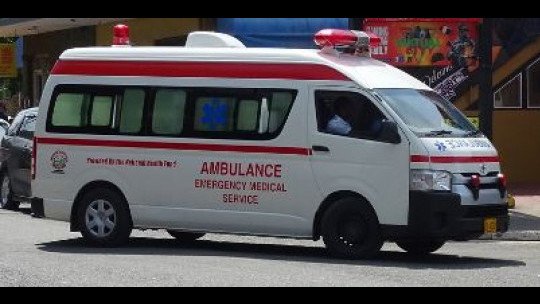Ambulance Drivers’ Sick-Out: A Call for Action in Jamaica’s Health Sector
In a bold move that has caught the attention of many, ambulance drivers from the Kingston and St. Andrew Health Department staged a sick-out on Monday. Their protest centers around delayed payments, including retroactive and overtime wages that were supposed to be settled by last Friday. The situation has escalated to the point where the General Secretary of the Jamaica Association of Local Government Officers (JALGO), Helene Davis Whyte, is now seeking the intervention of the Ministry of Labour.
A Long-Standing Issue
The drivers have expressed frustration over payments that have reportedly been outstanding since 2022. “We were promised payment in April, but nothing has materialized,” one driver shared, highlighting the growing discontent among the ranks. The sick-out was not just a spontaneous act; it was a culmination of months of unmet promises and rising tensions.
Mrs. Davis Whyte spoke with Radio Jamaica News, shedding light on the recurring problem of delayed payments from the South East Regional Health Authority. “This is affecting staff morale significantly,” she stated. “When workers don’t see the new rates reflected in their salaries, it leads to frustration and, ultimately, action.”
The Impact on Health Services
The sick-out has had a ripple effect on several major health facilities, including the Kingston Public Hospital, Bustamante Hospital for Children, National Chest Hospital, and the Hope Institute. Patients seeking urgent care found themselves in a precarious situation, as ambulance services were severely impacted. “It’s disheartening to see our healthcare system strained like this,” remarked a concerned citizen outside the Kingston Public Hospital.
Overtime Woes
Another pressing issue raised by Mrs. Davis Whyte is the non-payment of overtime for ambulance drivers. A new policy limits overtime to just 15 hours a month, which has created delays in payments. “This is particularly challenging for our ambulance drivers, who often work beyond those hours to ensure that patients receive timely care,” she explained. The frustration is palpable among the drivers, many of whom feel undervalued for their critical role in the healthcare system.
A Broader Context
This protest is not an isolated incident. Just last week, registered and enrolled nurses under the South East Regional Health Authority also called in sick, voicing their grievances over unpaid salaries, uniform allowances, and retroactive overtime. The healthcare sector is clearly under strain, and the voices of its workers are becoming increasingly difficult to ignore.
Voices from the Community
Community members have expressed their support for the ambulance drivers. “They’re the ones who rush our loved ones to the hospital. If they’re not being treated fairly, how can we expect them to perform their duties effectively?” said a local resident. The sentiment is echoed across social media, where many are rallying behind the drivers and calling for immediate action from the Ministry of Health.
Looking Ahead
As the situation unfolds, the question remains: how will the Ministry of Labour respond to this urgent call for intervention? With healthcare workers standing up for their rights, it’s clear that the time for change is now. Will the authorities take the necessary steps to resolve these issues, or will the protests continue? The eyes of the nation are watching, and the voices of the workers are growing louder.

